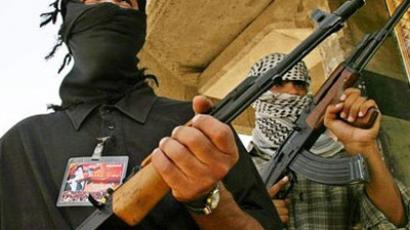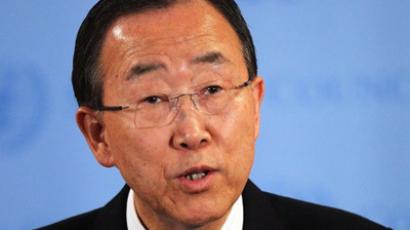UN Syria report 'a step forward’ – researcher
The UN has released a new report claiming that both the Syrian government and the opposition are engaged in gross human rights violation. RT discussed the documents' significance with researcher William Engdahl.
RT:The UN report calls Syria’s conflict “increasingly militarized,” while the Syrian government blames “outside forces” for fueling the conflict. Who is benefitting from that?William Engdahl: I think the significance of the new UN report is that for the first time, it’s acknowledged that there are atrocities on the side of the so-called Syrian opposition; the rebel groups, the jihadists, al-Qaeda and the Muslim Brotherhood forces that are trying to create regime change. So to that extent I think it’s a step forward, that it’s not simply a one-sided genocide by the Assad regime. RT: Is the mission of the UN observers deployed to Syria to maintain the ceasefire bound to fail?WE: It’s hard to see how it can do much of anything. I think the more significant point is, Washington has backed off of a Libya-style regime change operation in Syria. They realize that with Russia and China drawing the line in the sand together with Iran some months ago, and refusing to go along with a UN Security Council resolution and the fact that the so-called Syrian National Council is rife with Muslim Brotherhood domination and is split within itself and can’t get its own act together, that there is no opposition worthy of the name at this point. You have eyewitness reports that I got when I was in Turkey recently that you had so-called rebel fighters coming in across the border from Turkey. They were armed with a fistful of dollars and Kalashnikovs, and they were told they were fighting Israeli Defense Forces and it turns out they were fighting fellow Arab brothers and they were a little bit shocked to find out. So I think what we have there is quite far away from the Western media accounts of this. I think it’s time to just let the Syrians sort out for themselves what they want for a government in their country. RT:Is there still hope for peace through diplomacy, considering that Washington is continuing its “non-lethal assistance” to the Syrian opposition?WE: Washington is playing a double game on Syria. I think they’re trying at this point damage control; they failed massively in an operation they had thought they would succeed in a year ago. The momentum of the so-called Arab spring has screeched to a halt. It’s really turned into a Shiite versus Sunni kind of war throughout the Muslim world, with Saudi and Qatari money financing the Sunni side of it and Iranian money financing the much of the Shiite side of it. But the point is, it’s failed and Obama doesn’t want another military conflict before the November election, so he’s evidently given the order to backtrack significantly on that, as well as Iran. RT: Is there a danger that the conflict could spread to other countries, such as Lebanon, and engulf the entire region?WE: I see less of a danger now than perhaps there was six months ago, frankly. I think the situation in Syria is militarily much more stable than it was six months ago, and Syria is in effect – also for Israel – a guarantor of stability in Lebanon. As ironic as that may sound, that is the fact on the ground. If the escalation of the arming of the so-called Syrian opposition, many of whom are not even Syrian nationals, comes to a halt or is significantly downgraded, which Washington is doing right now, then I think the situation in Lebanon is not likely to spin out of control any time soon. RT: What would happen in Syria, Lebanon or, perhaps elsewhere, if President Assad leaves his post, given the fact that al-Qaeda militants are also on the ground?WE: You also have the fact that the largest opposition is the Muslim Brotherhood, which is dominating post-Mubarak politics in Egypt as well. If you have that, then you have a situation which is very hostile to the security in Israel. That creates instability there, as you would have the Muslim Brotherhood dominating the governments both in Syria and Egypt. So there’s no stable, secular opposition, which could allow the situation in view that you had for centuries in Syria with Christians, Jews and Muslims, whether Shiite or Sunni or Alawite, living side by side. In fact you would have chaos and anarchy like you have in Libya today. The report issued by the UN says that while the Syrian regime is responsible for the largest share of the violence, rebels are also involved in kidnapping civilians and torturing captured soldiers. In the meantime, Amnesty International has also released a report criticizing the UN Security Council for being too slow to act on Syria.















